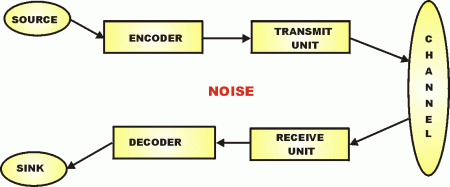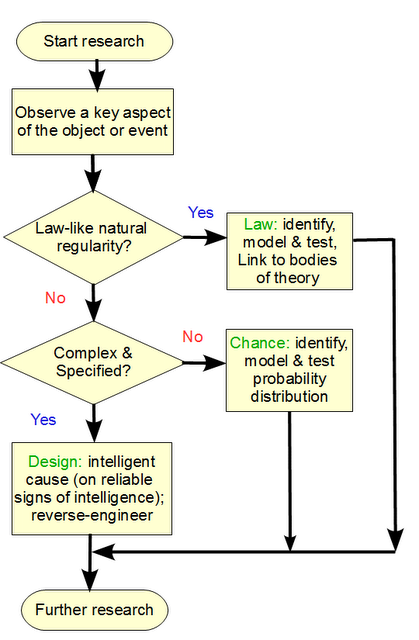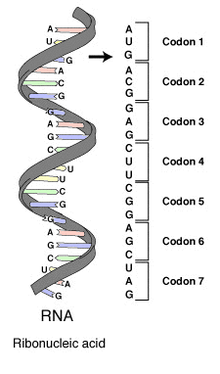A handy source on the broader view of naturalism (as a bit more elaborate than a dictionary and a tad more credible than Wikipedia) is Encyclopedia Britannica:
>>Naturalism, in philosophy, a theory that relates scientific method to philosophy by affirming that all beings and events in the universe (whatever their inherent character may be) are natural. Consequently, all knowledge of the universe falls within the pale of scientific investigation. Although naturalism denies the existence of truly supernatural realities, it makes allowance for the supernatural, provided that knowledge of it can be had indirectly—that is, that natural objects be influenced by the so-called supernatural entities in a detectable way . . . . While naturalism has often been equated with materialism, it is much broader in scope. Materialism is indeed naturalistic, but the converse is not necessarily true. Strictly speaking, naturalism has no ontological preference; i.e., no bias toward any particular set of categories of reality: dualism and monism, atheism and theism, idealism and materialism are all per se compatible with it. So long as all of reality is natural, no other limitations are imposed. Naturalists have in fact expressed a wide variety of views, even to the point of developing a theistic naturalism.
Only rarely do naturalists give attention to metaphysics (which they deride), and they make no philosophical attempts to establish their position. Naturalists simply assert that nature is reality, the whole of it. There is nothing beyond, nothing “other than,” no “other world” of being.>>
This sentiment is longstanding. Indeed, it echoes part of the discussion in Plato’s The Laws, Book X. Let’s clip:
>Ath. . . . I am afraid that we have unconsciously lighted on a strange doctrine.
Cle. What doctrine do you mean?
Ath. The wisest of all doctrines, in the opinion of many.
Cle. I wish that you would speak plainer.
Ath. The doctrine that all things do become, have become, and will become, some by nature, some by art, and some by chance.Cle. Is not that true?
Ath. Well, philosophers are probably right; at any rate we may as well follow in their track, and examine what is the meaning of them and their disciples.Cle. By all means.
Ath. They say that the greatest and fairest things are the work of nature and of chance, the lesser of art, which, receiving from nature the greater and primeval creations, moulds and fashions all those lesser works which are generally termed artificial . . . . Then I suppose that I must repeat the singular argument of those who manufacture the soul according to their own impious notions; they affirm that which is the first cause of the generation and destruction of all things, to be not first, but last, and that which is last to be first, and hence they have fallen into error about the true nature of the Gods.Cle. Still I do not understand you.
Ath. Nearly all of them, my friends, seem to be ignorant of the nature and power of the soul, especially in what relates to her origin: they do not know that she is among the first of things, and before all bodies, and is the chief author of their changes and transpositions. And if this is true, and if the soul is older than the body, must not the things which are of the soul’s kindred be of necessity prior to those which appertain to the body?Cle. Certainly.
Ath. Then thought and attention and mind and art and law will be prior to that which is hard and soft and heavy and light; and the great and primitive works and actions will be works of art; they will be the first, and after them will come nature and works of nature, which however is a wrong term for men to apply to them; these will follow, and will be under the government of art and mind.Cle. But why is the word “nature” wrong?
Ath. Because those who use the term mean to say that nature is the first creative power; but if the soul turn out to be the primeval element, and not fire or air, then in the truest sense and beyond other things the soul may be said to exist by nature; and this would be true if you proved that the soul is older than the body, but not otherwise. >>
This of course directly brings out the challenge that to broaden “nature” to mean reality without implying a commitment to physicalism instantly renders “nature” meaningless. For, if nature is merely a synonym for “reality” whatever its contents, then nature is a redundant word and — as I noted earlier — the supernatural would then simply be a synonym for non-being.
But obviously it is not intended to be like that.
So, what game is afoot?
Notice, how Enc Brit qualifies: “[a]lthough naturalism denies the existence of truly supernatural realities, it makes allowance for the supernatural, provided that knowledge of it can be had indirectly . . . “
What does this mean, unless it is an outright contradiction?
In effect, it reflects an attempt to lock out the “truly” supernatural (= non-being on naturalism) while enfolding what we could for discussion call “the sub-supernatural.” That is, things WITHIN the ambit of nature that are inferred from their effects on what is observed. Presumably, this includes things like the conscious mind which cannot be reduced to mechanical operations of a computational substrate without ending in self-referential incoherence.
That is, we may be seeing here an echo of the self-referential incoherence of materialism, by way of an attempted workaround.
Does it work?
No.
For, if the “natural” is broadened to imply or encompass all of reality, it loses its meaning. Save, for the smuggled-in one that the denial of the supernatural is a euphemism for atheism, gaining plausibility through its focus on the alleged general power and success of Big-S Science. Where, connotations and implicit but unexamined links are open invitations to wooly-minded error.
So then, while the connexions to underlying physicalism can be disguised, they cannot be severed without emptying “nature” of meaning. We can take it to the bank that on naturalism, the implied vision of the world is that all of reality is rooted in and emerges from a physical substratum, by blind chance and mechanical necessity. That is, from hydrogen to humans by unguided cosmological, chemical, biological and cultural evolution.
Naturalism is either meaningless (if isolated from physicalism and turned into a synonym for “reality”) or else it is tantamount to evolutionary materialism (with implications of “emergence”).
This also shows why scientism is central.
As, we may see from Enc Brit (again, cited as a typical source):
>>all beings and events in the universe (whatever their inherent character may be) are natural. Consequently, all knowledge of the universe falls within the pale of scientific investigation.>>
That is, if all that is is ultimately physical then the study of how the physical has unfolded by blind chance and/or mechanical necessity to become the world we inhabit captures all of truly credible knowledge. Such study, obviously, proceeds by empirical methods, and those methods will need to avoid appeals to non-being, the so called supernatural.
Methodological naturalism instantly follows: science may only appeal to naturalistic concepts and explanations.
And so too, instantly, we see the context for Lewontin’s remarks in his well-known NYRB article:
>> . . . to put a correct [–> Just who here presume to cornering the market on truth and so demand authority to impose?] view of the universe into people’s heads
[==> as in, “we” the radically secularist elites have cornered the market on truth, warrant and knowledge, making “our” “consensus” the yardstick of truth . . . where of course “view” is patently short for WORLDVIEW . . . and linked cultural agenda . . . ]
we must first get an incorrect view out [–> as in, if you disagree with “us” of the secularist elite you are wrong, irrational and so dangerous you must be stopped, even at the price of manipulative indoctrination of hoi polloi] . . . the problem is to get them [= hoi polloi] to reject irrational and supernatural explanations of the world [–> “explanations of the world” is yet another synonym for WORLDVIEWS; the despised “demon[ic]” “supernatural” being of course an index of animus towards ethical theism and particularly the Judaeo-Christian faith tradition], the demons that exist only in their imaginations,
[ –> as in, to think in terms of ethical theism is to be delusional, justifying “our” elitist and establishment-controlling interventions of power to “fix” the widespread mental disease]
and to accept a social and intellectual apparatus, Science, as the only begetter of truth
[–> NB: this is a knowledge claim about knowledge and its possible sources, i.e. it is a claim in philosophy not science; it is thus self-refuting]
. . . . To Sagan, as to all but a few other scientists [–> “we” are the dominant elites], it is self-evident
[–> actually, science and its knowledge claims are plainly not immediately and necessarily true on pain of absurdity, to one who understands them; this is another logical error, begging the question , confused for real self-evidence; whereby a claim shows itself not just true but true on pain of patent absurdity if one tries to deny it . . . and in fact it is evolutionary materialism that is readily shown to be self-refuting]
that the practices of science provide the surest method of putting us in contact with physical reality [–> = all of reality to the evolutionary materialist], and that, in contrast, the demon-haunted world rests on a set of beliefs and behaviors that fail every reasonable test [–> i.e. an assertion that tellingly reveals a hostile mindset, not a warranted claim] . . . .
It is not that the methods and institutions of science somehow compel us [= the evo-mat establishment] to accept a material explanation of the phenomenal world, but, on the contrary, that we are forced by our a priori adherence to material causes [–> another major begging of the question . . . ] to create an apparatus of investigation and a set of concepts that produce material explanations, no matter how counter-intuitive, no matter how mystifying to the uninitiated. Moreover, that materialism is absolute [–> i.e. here we see the fallacious, indoctrinated, ideological, closed mind . . . ], for we cannot allow a Divine Foot in the door . . . [–> irreconcilable hostility to ethical theism, already caricatured as believing delusionally in imaginary demons]. [Lewontin, Billions and billions of Demons, NYRB Jan 1997,cf. here. And, if you imagine this is “quote-mined” I invite you to read the fuller annotated citation here.]>>
However, as was pointed out yesterday, once we see that, say, Information Theory is of genuinely scientific character, all of this falls apart:
>>Yes, science addresses the natural lawlike regularities and it addresses chance circumstances and stochastic phenomena, often with great success. But that is not at all that science, properly, can and does address. For we know that intelligently directed configuration is a significant feature of the world, e.g. the text in posts in this thread.
Whole sciences exist to study such phenomena, starting with communication and information theory.
At the heart of that theory as pioneered by Shannon, Nyquist and others lies a key concept: signal to noise [power] ratio, often expressed in decibels. That is, by empirically observable characteristics we can routinely distinguish intelligent signal from natural noise due to mechanical necessity and/or chance processes. We may then use instruments and scientific processes to measure the two, and take their power ratio, defining S/N as a figure of merit. Onward we define for example the noise figure/factor or noise temperature, etc. We may distinguish diverse kinds of noise and identify source phenomena: white or pink noise, Johnson noise due to statistical properties of a resistance, flicker noise, shot noise etc.
So, already, in a major scientific discipline, information-bearing artificially produced signals are distinguished from natural noise due to mechanical necessity and/or chance. The design inference is there, and the per aspect form explanatory filter that allows attribution of effects across mechanical necessity, chance and/or intelligently directed configuration is there. We routinely quantify, calculate and measure resulting values. In an Internet era, all of this is central to the global economy and society.
That was already evident c 2000, so we must ask pointed questions about imposed definitions of science that lock out things that are so well-established.
And, not just established for technological fields.
For, coded, alphanumerical, algorithmically functional information, since 1953, has been known to lie in the heart of the living cell, to be the key to the assembly of proteins, and thus to be the key to understanding cell based life.
That is, information theory is directly and inextricably intertwined with the heart of life. Where, beyond doubt, the signal characteristics of DNA plainly assign it to the signal side of the signal vs noise threshold.
Now, the only empirically observed and analytically plausible cause of such complex, alphanumerically coded — thus, linguistic — signals is intelligently directed configuration. Newton’s rules of scientific inference are plain on such a matter: the only causes now in operation adequate to and actually observed to create digital, complex, functionally specific, information bearing signals are causes tracing to intelligently directed configuration. Design, in one word.>>
So, the challenge can be put in these terms: is or is not Information Theory (for example) of genuinely scientific character?
If the answer per the naturalistic concepts and explanations definition, then we have — for cause — far more confidence in the scientific character of information theory than in the definition. The definition fails.
If the answer is yes, the definition fails directly.
And with it, methodological naturalism fails.
Ontological naturalism, holding that reality is rooted in and circumscribed by a physical substratum and its unguided evolution from hydrogen to humans, fails by way of self-referential incoherence. Summarising again from Haldane as a brief but to the point observation:
>>“It seems to me immensely unlikely that mind is a mere by-product of matter. For if my mental processes are determined wholly by the motions of atoms in my brain I have no reason to suppose that my beliefs are true. They may be sound chemically, but that does not make them sound logically. And hence I have no reason for supposing my brain to be composed of atoms. In order to escape from this necessity of sawing away the branch on which I am sitting, so to speak, I am compelled to believe that mind is not wholly conditioned by matter.” [“When I am dead,” in Possible Worlds: And Other Essays [1927], Chatto and Windus: London, 1932, reprint, p.209. (NB: DI Fellow, Nancy Pearcey brings this right up to date (HT: ENV) in a current book, Finding Truth.)]>>
In sum, we have good reason to hold that broadened naturalism becomes meaningless, that naturalism tied to physicalism is self-referentially incoherent and that methodological naturalism can neither escape that dilemma nor form a definition of science that is naturalistic and able to accept fields such as information theory.
We may freely set such aside as intellectually bankrupt. END


